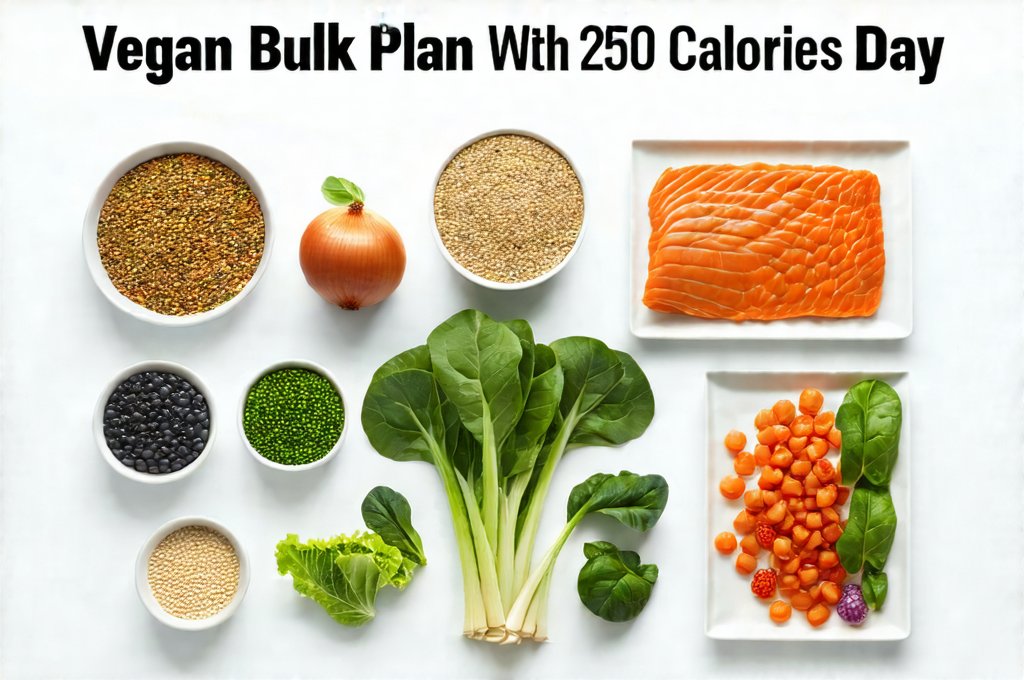Vegan Bulk Plan With 2500 Calories Per Day
Building muscle – or bulking as it’s often called – requires consistent effort in both training and nutrition. For vegans, this can sometimes seem more challenging than for omnivores, due to concerns about adequate protein intake and ensuring a complete amino acid profile. However, with careful planning and knowledge of plant-based sources, achieving a successful vegan bulk is absolutely attainable and incredibly rewarding. This isn’t just about adding weight; it’s about strategically increasing caloric intake while prioritizing nutrient density to support muscle growth and overall health. A 2500 calorie plan offers a solid foundation for many individuals looking to gain mass, but remember that individual needs vary based on activity level, metabolism, and body composition.
This guide will outline a comprehensive vegan bulk plan centered around a daily caloric intake of 2500 calories. We’ll focus not only on hitting those numbers but also on sourcing the right macronutrients – protein, carbohydrates, and fats – from whole, plant-based foods. The goal is to fuel your workouts effectively, support muscle recovery, and ultimately achieve sustainable gains without compromising your ethical commitment to a vegan lifestyle. This isn’t about restrictive dieting; it’s about abundance and providing your body with the resources it needs to thrive.
Macronutrient Breakdown & Food Choices
A 2500-calorie bulk plan requires careful attention to macronutrient ratios. A generally effective starting point for bulking is: Protein – 1.6 – 2.2g per kg of bodyweight (around 130-180g for a 80kg individual); Carbohydrates – 4-5g per kg of bodyweight (approximately 320-400g for an 80kg person); Fats – 0.8-1g per kg of bodyweight (64-80g for an 80kg individual). These are guidelines, and adjustments may be needed based on individual response and training intensity. Prioritizing complex carbohydrates is key, as they provide sustained energy for workouts and recovery. Excellent sources include sweet potatoes, brown rice, quinoa, oats, and legumes.
Protein needs can often be the biggest concern for vegan bulking. However, a wide variety of plant-based options exist. Tofu, tempeh, seitan, lentils, chickpeas, beans, edamame, and plant-based protein powders are all excellent choices. Combining different sources ensures you obtain a complete amino acid profile. Don’t underestimate the power of whole grains and vegetables – they contribute to your overall protein intake too! Strategic supplementation with vegan protein powder can be helpful, particularly post-workout, but should not replace whole food sources.
Fats play a crucial role in hormone production and overall health. Focus on healthy fats like avocados, nuts, seeds (chia, flax, hemp), olive oil, and coconut oil. Avoid excessive amounts of saturated and trans fats. Incorporating these fats into your diet will not only support muscle growth but also improve nutrient absorption and provide sustained energy throughout the day. Remember that fat is calorie-dense, so portion control is important to stay within your target caloric intake.
Sample Meal Plan – 2500 Calories
Here’s a sample meal plan illustrating how to achieve approximately 2500 calories while adhering to vegan principles. This is just a template and can be adjusted based on personal preferences and dietary needs:
- Breakfast (approx. 500 calories): Oatmeal made with plant milk (almond, soy, or oat), topped with berries, nuts/seeds, and a scoop of vegan protein powder. A side of fruit like banana adds further carbohydrates.
- Mid-Morning Snack (approx. 250 calories): Apple slices with two tablespoons of peanut butter. This provides healthy fats and sustained energy.
- Lunch (approx. 600 calories): Large salad with quinoa, chickpeas, roasted vegetables (sweet potatoes, broccoli), avocado, and a tahini-based dressing. Ensure adequate portion sizes to reach calorie goals.
- Pre-Workout Snack (approx. 250 calories): Banana and a small handful of almonds – quick energy for your workout.
- Post-Workout Meal (approx. 600 calories): Tofu scramble with black beans, brown rice, and salsa. A vegan protein shake can supplement this meal.
- Evening Snack (approx. 300 calories): Plant-based yogurt with berries and a sprinkle of granola.
Hydration & Timing
Staying adequately hydrated is paramount during a bulk, as water supports muscle function and nutrient absorption. Aim for at least 3 liters of water per day, increasing intake on workout days. Timing your meals around your training schedule can optimize results. Consuming carbohydrates before workouts provides energy, while protein and carbohydrates post-workout aid in recovery. Don’t neglect consistent meal timing throughout the day to maintain stable blood sugar levels and prevent excessive hunger.
Supplementation Considerations
While a well-planned vegan diet should provide most necessary nutrients, certain supplements can be beneficial during a bulk:
– Creatine: Enhances strength and muscle growth. Vegan sources are available.
– Vitamin B12: Essential for nerve function and red blood cell production; often lacking in plant-based diets.
– Vitamin D: Important for bone health and immune function, especially during winter months.
– Omega-3 Fatty Acids (DHA/EPA): Support overall health and reduce inflammation. Algae-derived supplements are a vegan source. Supplementation should complement, not replace, a balanced diet. Consult with a healthcare professional before starting any new supplement regimen.
This plan is designed to be adaptable and sustainable. Remember to listen to your body, adjust portions as needed, and prioritize whole, plant-based foods for optimal results. Consistent effort and informed nutrition are the keys to unlocking your vegan bulk potential.




